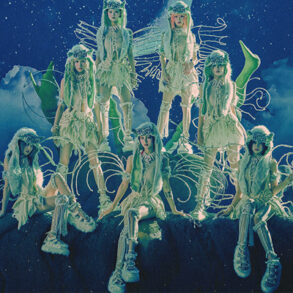The biggest conversation about hip-hop this past week wasn’t around Quavo memorializing his deceased brother with his new album, or Doja Cat being out for blood on songs like her new single “Demons,” or how 50 Cent is wrecking the stage on a worldwide tour of 80-plus dates, despite having nothing to prove after a successful career migration to Hollywood. The loudest conversation has been about an op-ed titled “50 Years Later, Is There Anything Left Of Hip Hop?”
Hip-hop is celebrating its 50th birthday this year, and like many middle-aged people, it’s accomplished just as much as it’s left behind. The Detractor piece, written by Jason England, highlights many of the same criticisms that hip-hop (and to be fair, America as a whole) has been fighting for decades: misogyny, too much of an adherence to capitalism and prosperity gospel, and most importantly, the idea that it’s been so heavily co-opted by corporate interests that it’s become mainstream culture and abandoned its countercultural roots. England suggests hip-hop has lost what made it powerful in the first place. And of course, he’s got a point.
But unlike him, I’m not willing to write hip-hop off just yet. People have been touting its demise for at least 35 of these 50 years, and it’s still here. When it was founded, part of what made hip-hop so great was that it required so much to get into it. That’s what I think of now when I see complaints about its cultural deficiencies or concerns about the Billboard charts’ lack of No. 1 rap albums this year. To me, these trends imply that hip-hop might be on its way back to its origins: powerful art created on any terms necessary. The people who that music is meant for will find it. Artists, critics, and creators on every level — mainstream, indie, and underground; Gen X to Gen Z; male, female, nonbinary — are keeping hip-hop alive. Still, England’s essay has some merits: hip-hop has plenty of work to do, and like any culture, that’s more of an ongoing mission than a specific destination.
With the Rap City newsletter, we’ll revisit some of the culture’s biggest historical moments, highlight the powerful voices still making dopeness, and have difficult-but-necessary conversations that will help both the culture and us, as Black and brown people, thrive and learn.
Do The Knowledge: Kiana Fitzgerald’s Ode To Hip-Hop: 50 Albums That Define 50 Years of Trailblazing Music. Kiana has been one of hip-hop’s most preeminent writers of the past decade, especially when it comes to conversations about mental health. Her new book shows a reverence of the classics and an understanding of how newer acts have both followed in their footsteps and charted new paths altogether. Gorgeous illustrations by artist Yay Abe mean the book looks just as great on your coffee table as it does in your hands.
The Listening: Despite Doja Cat’s multifaceted artistry as a singer and spitter, many have doubted her validity as an MC. She’s made it a point this year to prove those detractors wrong, and “Demons” is the latest example. Doja finds various pockets in the beat for both her verses and adlibs, using ambidextrous vocal shifts while boasting about quitting nicotine, demanding sexual pleasures, and disposing of her enemies with the bravado we expect from our best. The hyper-creative video, which sees her portraying a Black, supernatural being who chases a white mother and their kids out of their home, is just as exciting. “Lots of people that were sleeping say I rap now,” she says in the song’s second verse. She’s waking up a different set of detractors with each drop, and we’re glad to have a front-row seat.
They Reminisce Over You: A couple of weeks ago, Ms. Lauryn Hill’s classic debut, The Miseducation of Lauryn Hill, turned 25 years old. We recently revisited the album to discuss its historical relevance and its current impact.








